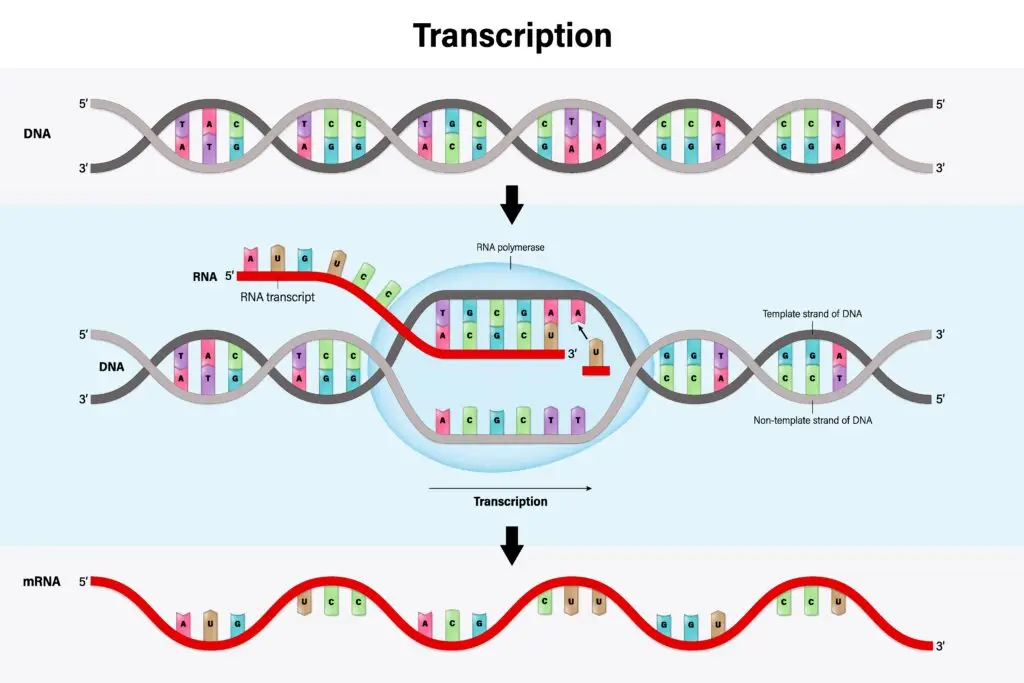Transcription
What is Transcription?
Transcription is the process by which a gene’s DNA sequence is copied into messenger RNA (mRNA) within the cell nucleus. This mRNA then carries the genetic information needed to make a protein.
DNA to RNA
Transcription is the process where the cell copies information from DNA into RNA. This happens in the nucleus and is the first step in making proteins. During this process, an enzyme called RNA polymerase reads the DNA strand and creates a matching strand of messenger RNA (mRNA). The mRNA then carries these instructions out of the nucleus to a ribosome. Without transcription, the cell wouldn’t be able to use DNA’s instructions to build proteins.
How Transcription Works
Transcription begins when RNA polymerase attaches to a specific section of DNA, called the promoter. It unwinds the DNA and reads one strand, building an mRNA strand with complementary bases. For example, if the DNA sequence has adenine (A), the mRNA will pair it with uracil (U) instead of thymine (T). Once the mRNA is complete, it detaches and leaves the nucleus, while the DNA zips back together. This precise process ensures accurate instructions are sent to the ribosome.
Why it is Important
Transcription is essential for turning DNA’s genetic code into proteins. Without it, the cell couldn’t produce the proteins it needs to grow, repair, or perform specific functions. It allows the cell to copy only the parts of DNA that are needed at a given time. This flexibility helps cells save energy and adapt to changes in their environment, making transcription vital for life.
Transcription vs. Translation
Transcription and translation are two separate but connected steps in protein synthesis. While transcription copies DNA into RNA, translation takes the RNA instructions and builds proteins. This process happens in the nucleus, while translation occurs in the cytoplasm at a ribosome. Together, these processes turn the cell’s genetic code into the proteins that carry out its functions, demonstrating the teamwork needed for life.
